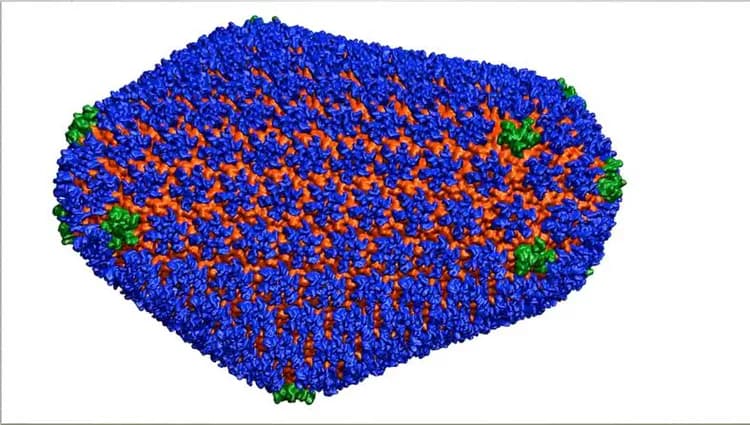
HIV Treatment Might Boost Susceptibility To Syphilis, Say Researchers
The antiretroviral drugs used to treat HIV infection might inadvertently be boosting gay/bisexual men's susceptibility to the bacteria responsible for syphilis, Treponema pallidum, conclude researchers in the journal Sexually Transmitted Infections.
This might explain why new and repeat cases in these groups have risen so sharply compared with other sexually transmitted infections over the past decade, they suggest.
The availability of highly active antiretroviral therapy (HAART) for the treatment of HIV infection has meant that HIV is no longer the automatic death sentence that it once was. The absence of the fear factor is thought to have prompted higher rates of sexually transmitted infections as a result of risky, unprotected sex.
But it's not clear why rates of syphilis among gay/bisexual men should be so much higher than those of chlamydia or gonorrhoea, especially as HAART boosts immune system activity, and so would be expected to lower susceptibility to infections, say the Canadian and South African researchers.
They therefore reviewed the available evidence on the impact of HAART on behavioural and immune system change to come up with a numerical analysis to explore which might affect the prevalence of the infection the most. They used two risk 'models' to test the likelihood of syphilis infection: one (lower risk) which compared HAART with no treatment in an HIV positive partner; and the other (higher risk) which compared existing infection with no infection in a partner who was either HIV negative or positive.
Behaviour change was taken to mean that HAART would result in more sexual partners; and immune system changes were taken to mean that HAART would boost susceptibility to Treponema pallidum.
The calculations showed that either factor could produce outbreaks of syphilis that would be substantially higher than expected, but that both factors combined produced a peak in the number of infections that was greater than that associated with either factor alone -- and equivalent to the sorts of figures seen in the current outbreak.
This suggests that there's an interplay between behavioural change and immune system changes, say the researchers, who offer a possible explanation for a biological effect on the immune system.
The body's clearance of T pallidum relies on an increase in the number of an immune system cell called a T cell and a cascade of chemicals that stimulate an inflammatory response. HAART dampens down these activities. Clearance of chlamydia and gonorrhoea is less reliant on these processes, say the researchers.
The researchers also refer to other relevant associations, such as the increased risk of certain types of cancer that have been linked to HAART.
"Overall, these findings suggest a possible link between HAART and an increased risk for selected diseases of infectious and non-infectious origin, a potential unforeseen consequence that warrants further study," they write.
In a linked editorial, Drs Susan Tuddenham, Maunank Shah, and Khalil Ghanem from Johns Hopkins University School of Medicine, Baltimore, caution that the rise in syphilis cases may simply reflect inadequate screening for chlamydia and gonorrhoea.
They also point to previous outbreaks of syphilis in straight men and women in the 1980s and 1990s before the advent of HAART.
Similarly, they suggest that the calculations used by the researchers don't take account of the complexities of sexual relationships, such as relationship length or the number of concurrent partners, or decreased use of condoms in long term relationships, all of which might influence infection risk.
But despite these caveats, they describe the researchers' hypothesis as "intriguing," and one that "warrants careful consideration."
They continue: "We are living in an era where [antiretroviral therapy] is being used to effectively treat and prevent HIV infection. To some extent this seems to have tempered the urgency to control other [sexually transmitted infections]. As history has shown many times over, that would be a costly mistake."
And they conclude: "Over the past 15 years, syphilis rates among [men who have sex with men] have been rising unabated. We are not aware of any recent intervention that has led to a sustained decline in [these rates] in this population.
"If further investigations support a role for [antiretroviral therapy] in increasing susceptibility to syphilis, this will provide one more reason why screening, diagnosis and treatment of [sexually transmitted infections] in [men who have sex with men] must be prioritised."
Materials provided by BMJ. Note: Content may be edited for style and length.
Disclaimer: DoveMed is not responsible for the accuracy of the adapted version of news releases posted to DoveMed by contributing universities and institutions.
Primary Resource:
Tuddenham, S., Shah, M., & Ghanem, K. G. (2017). Syphilis and HIV: Is HAART at the heart of this epidemic?. DOI: 10.1136/sextrans-2016-052940
Related Articles
Test Your Knowledge
Asked by users
Related Centers
Related Specialties
Related Physicians
Related Procedures
Related Resources
Join DoveHubs
and connect with fellow professionals

0 Comments
Please log in to post a comment.